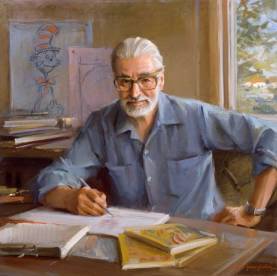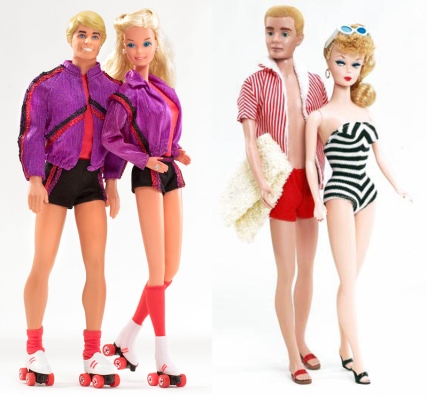A while back, I posted a call to all writers who wanted to share their editing tips, and up next on my offer was my good friend and blogging sister, Claire Luana. If you don’t already follow Claire’s blog, you’ll want to hope on over there right now and hit the Follow button! Anyway, here’s Claire…
*~*~*~*~*~*~*~*~*~*~*
 Please share one to three tips or tricks that you use when editing your work, how specifically you use them, and why they work for you.
Please share one to three tips or tricks that you use when editing your work, how specifically you use them, and why they work for you.
When I am hitting a rough patch in editing, I change the format. Somehow, sitting in front of the computer looking at the same screen for hours on end can kill my editing mojo. When I was doing a developmental edit of my current WIP, Moonburner, I started writing plot points on post-it notes and moving them around. When I hit another bump in the road, I created a non-linear map of how all my subplots connected, so I could look at the whole universe of it together.
For my latest edit, I printed my manuscript out and read it like a book. I highlighted areas that tripped me up or didn’t sound quite right, but didn’t go back and edit them until later, to keep myself in “reader” mode, rather than “editing” mode. I have found that the change in perspective from something purely mental to something a bit more tangible has made a huge difference for me when I am stuck.
What was your biggest repeated mistake when you first started writing? What is your weakest point of editing and why?
I haven’t been writing for very long, so I am not sure I have fixed my biggest mistakes yet! As far as process, it was a mistake for me to over-outline. I am a very type-A person and so I assumed that I would be a “plotter,” not a “pantser.” I spent several months outlining, creating character sketches, even finding photos for my characters to put into my Scrivener folders! But when I actually sat down to write, I couldn’t even get past the first chapter. My overanalyzing of the story before it even began crippled my creativity. I ended up scrapping the whole project and starting from scratch on another idea with a one-page outline. It flowed amazingly!
I would also say it is a mistake (for me at least) to read books on the craft of writing and editing while I am in the process. It makes me start to doubt myself and go back and end up in a revision spiral. It is better for me to read a book on craft, absorb those lessons, and then sit down to my writing and editing with those things in mind. Mid-stream just didn’t work for me.
As for my weakest point of editing, it is definitely large scale, developmental editing. I have spent a fair amount of time in my professional career with copyediting and line-editing; I feel comfortable with grammatical rules and the Chicago Manual of Style. What still feels like a foreign language are the big things: character arcs, weaving sub-plots, theme, etc. All the aspects of editing for what makes a story compelling, rather than what makes good writing. I am still learning how to get my hands around the scope of a novel without feeling overwhelmed. Any tips would be appreciated 🙂
Have you used any editing methods previously that just didn’t work for you? If so, what were they, and why didn’t they work?
Editing from the beginning, over and over again, without utilizing different methods or focusing for different elements. I spent about three edits just plodding through my work, looking for the same things as I edited. I would get increasingly cavalier about my edits as I continued, meaning the beginning of the work is much tighter than the middle or end. I have learned that each of my edits should be unique–focused on a particular element(s) of the work. And if you are copy-editing, maybe start from the end and work your way backward!
Please tell us something about your current work in progress or your most recent completed work (or both), and tell us where we can purchase your book(s).
I am currently working on my first novel, a young adult fantasy novel called Moonburner. The synopsis:
Kai lives in Kita, where female sorcerers, moonburners, are hunted down and killed at birth. Her parents raise her as a boy in order to hide her true nature until she comes of age and can flee to neighboring Miina, where moonburners are trained and fight in the ongoing war with Kita.
Kai’s carefully laid plans are dashed when she is exposed as a moonburner and sentenced to death. In keeping with Kita’s cruel tradition, Kai is left to die in a vast desert bordering the two lands. Against all odds, Kai survives the desert and makes it to the citadel in Kita to begin her training.
As Kai struggles to learn to control her moonburning powers, she begins to realize that all is not as it seems at the citadel, and that the ongoing war against Kita has led the citadel leadership down a dark path that could spell the end of all burners. Kai discovers that her ties to the moonburners run deep, and that she holds the future of both Kita and Miina in her hands.
Moonburner is currently with beta readers and I am hopeful that I will begin submitting to agents in September. I am fully expecting that I won’t get any timely bites from agents, though, so I am also exploring self-publishing options!
I am loving connecting with other authors, editors, and writers, so please check out my blog at shotandahalfpint.wordpress.com!
*~*~*~*~*~*~*~*~*~*~*
Thank you, Claire, for such wonderful tips! (I really like the part about keeping it in “reader mode” versus jumping back and forth to “editor mode.”) Now, who’s up next? If you’re game, please contact me at:


 Rachel invited me over today to post about editing. (Like I know anything about it!) I’m fumbling along, learning as I go.
Rachel invited me over today to post about editing. (Like I know anything about it!) I’m fumbling along, learning as I go. I’m sure there are hundreds of things I don’t know. This is supposed to be an ongoing series, and I’ll let others weigh in. I have more, but I’ll only offer one:
I’m sure there are hundreds of things I don’t know. This is supposed to be an ongoing series, and I’ll let others weigh in. I have more, but I’ll only offer one:


 (*I asked you to share only one to three tips or tricks to keep each post short enough that people will read it in its entirety. If you have more helpful hints that you’d like to share, I’ll be happy to feature you more than once.)
(*I asked you to share only one to three tips or tricks to keep each post short enough that people will read it in its entirety. If you have more helpful hints that you’d like to share, I’ll be happy to feature you more than once.)



 Today marks the birthday of two wonderful authors who I absolutely adore. The first is Theodore Geisel. Theodore Geisel, born on March 2, 1904, was better known to his fans as Dr. Seuss. He published forty-six children’s books under this pen name.
Today marks the birthday of two wonderful authors who I absolutely adore. The first is Theodore Geisel. Theodore Geisel, born on March 2, 1904, was better known to his fans as Dr. Seuss. He published forty-six children’s books under this pen name. Mr. Geisel was unusual for a writer in that he preferred to be paid after his work was complete rather than in advance. Furthermore, he was a perfectionist and often took as long as a year to complete a single book, frequently discarding up to ninety-five percent of it as he went along.
Mr. Geisel was unusual for a writer in that he preferred to be paid after his work was complete rather than in advance. Furthermore, he was a perfectionist and often took as long as a year to complete a single book, frequently discarding up to ninety-five percent of it as he went along. Another author’s birthday we celebrate today is that of Desi Arnaz. Yes, I’m talking about the actor, musician, and producer who was married to Lucille Ball. Oh, you didn’t know he was an author? Yes, he penned his autobiography, simply entitled A Book, which was published in 1976. It was an immediate success.
Another author’s birthday we celebrate today is that of Desi Arnaz. Yes, I’m talking about the actor, musician, and producer who was married to Lucille Ball. Oh, you didn’t know he was an author? Yes, he penned his autobiography, simply entitled A Book, which was published in 1976. It was an immediate success. Mr. Arnaz was born on March 2, 1917 in Cuba, and died of lung cancer at the age of 69, on December 2, 1986, in Del Mar, California.
Mr. Arnaz was born on March 2, 1917 in Cuba, and died of lung cancer at the age of 69, on December 2, 1986, in Del Mar, California. For today’s Throwback Thursday, I’ll share with you a story about how I imagined I would write stories. As you already know if you’ve followed my blog for long, among other things, I loved to write stories when I was a kid. One of my other favorite pastimes was climbing trees. (Sadly, I was not allowed to build a treehouse, which for me would’ve been a dream come true.) The summer when I was eight-years old, I attempted to combine these two passions. I considered myself quite lucky one day when I found an old cigar box. I knew what I needed to do. I nailed that box high up in my favorite climbing tree. I loaded the box with loose leaf paper and pencils, and I imagined that I would spend hours in said tree writing The Great American Novel. I just knew that with that perfect setting, my heart would pour out through my pencil and bleed onto the paper, and people would come from miles around to read my work.
For today’s Throwback Thursday, I’ll share with you a story about how I imagined I would write stories. As you already know if you’ve followed my blog for long, among other things, I loved to write stories when I was a kid. One of my other favorite pastimes was climbing trees. (Sadly, I was not allowed to build a treehouse, which for me would’ve been a dream come true.) The summer when I was eight-years old, I attempted to combine these two passions. I considered myself quite lucky one day when I found an old cigar box. I knew what I needed to do. I nailed that box high up in my favorite climbing tree. I loaded the box with loose leaf paper and pencils, and I imagined that I would spend hours in said tree writing The Great American Novel. I just knew that with that perfect setting, my heart would pour out through my pencil and bleed onto the paper, and people would come from miles around to read my work.

